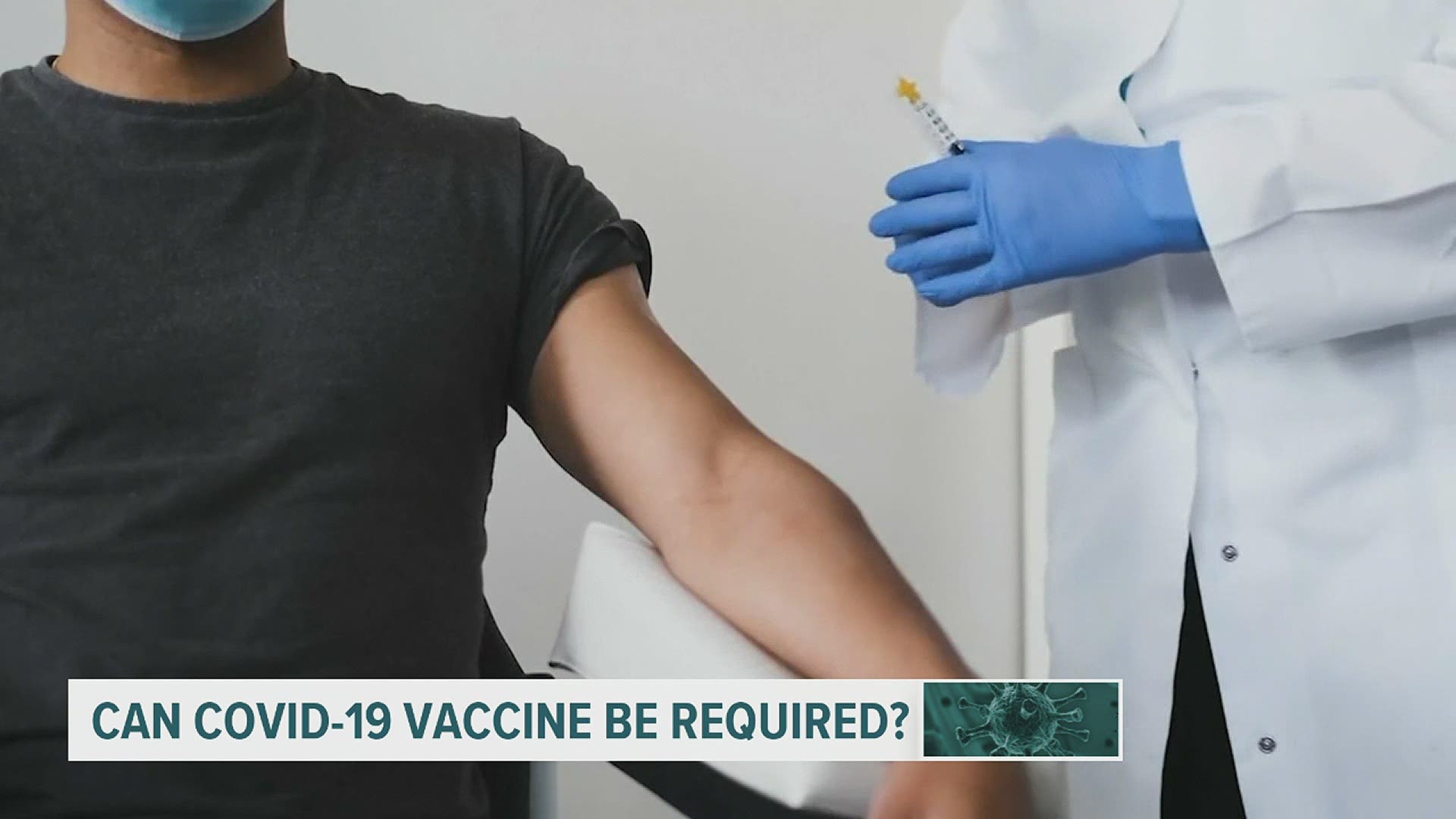HARRISBURG, Pa. — With a COVID-19 vaccine on the horizon, a big question remains: will people be required to get vaccinated?
Attorney Scott Cooper said it is a real possibility. Historically, states have had the power to mandate vaccinations.
“Back in 1905, the United States Supreme Court decided a case called Jacobson v. Commonwealth of Massachusetts. It was a mandatory smallpox vaccination where people were being required to take the vaccination and, if they did not, they would be fined $5, which in 2020 numbers is probably the equivalent of $150,” Cooper explained.
Cooper said most private employers would not be able to require their employees to get a COVID-19 vaccine, but adds healthcare establishments, like nursing homes, could require residents to get the vaccination or be removed from the facility.
"The U.S. Supreme Court said if there is a health or safety emergency of substantial nature, the state and its police powers can require vaccinations," Cooper said, referring to Jacobson v. Massachusetts, 197 U.S. 11 (1905).
If there were to be a vaccination mandate, it likely will not come anytime soon. Last month, Dr. Anthony Fauci—the nation’s top infectious disease specialist—told our Verify team that he does not think universal mandates should be the answer.
“In order to make an efficacious vaccine effective, you have to have a substantial proportion of the population to get vaccinated,” said Dr. Fauci. “Right now, we have a lot of convincing to do because there is a lot of skepticism in the community, when you do surveys, about people getting vaccinated.”
Each state has had to file a COVID-19 vaccination plan with the U.S. Centers for Disease Control and Prevention. Many states are finalizing their distribution plans. On December 4, New Jersey Governor Phil Murphy announced that several New Jersey hospitals are pre-positioning to receive the first shipments of Pfizer's coronavirus vaccine.
“We anticipate that the first distribution will include a total of 76,000 doses and there will be shipments, I think we can assume, every week thereafter for the foreseeable future," said Governor Murphy. "This pre-positioning is important to ensure first that delivery and storage systems work, and second to assist the federal government in expediting shipments and delivery."
In Pennsylvania, the Wolf Administration has released few details on its mass COVID-19 vaccination plan. The Department of Health is anticipating an extremely limited number of doses in the beginning of its vaccination program, and as a result, will focus its efforts on healthcare workers, first responders, critical workers and individuals with high-risk conditions.
“At this time, Pennsylvania has not received our final vaccine allocation. There are many factors contributing to that final number, including which vaccine will receive the FDA’s approval,” said Rachel Kostelac, a department spokesperson.
The department will utilize a three-phased recruiting and enrollment approach for vaccination providers, according to Pennsylvania’s COVID-19 Vaccination Plan Executive Summary.
Phase 1 is currently under way and focuses on hospitals, Federally Qualified Health Centers, County and Municipal Health Departments, and DOH State Health Centers. Phases 2 and 3 will be expanded to existing Vaccines for Children (VFC) and nonVFC providers and pharmacies throughout the commonwealth.

